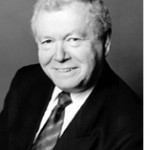By Rabbi Dow Marmur

JERUSALEM — Perhaps one of the reasons for Prime Minister Netanyahu’s preoccupation – some say, obsession – with Iran is that he sees here an opportunity to enlarge and strengthen his very fragile coalition.
That’s a possible way of understanding the news that President Rivlin is now mediating between the prime minister and the leader of the opposition Isaac Herzog about forming a so-called government of national unity. If Herzog and some other members of his party joined such a government, it would become more stable and Netanyahu could stay in office for the next few years.
According to Zahava Galon, the leader of the left-wing Meretz, such an arrangement is on the way. According to those who speak for the Zionist Union (Herzog’s party), it’s not. We’re free to speculate.
What is clear, however – because he himself said so – is that Mr. Herzog is on his way to the United States to meet with politicians – more likely Democrats rather than Republicans – in an effort to make Israel’s case. The prime minister and the leader of the opposition seem to agree that the agreement in Vienna is bad news for Israel.
Herzog has accused Netanyahu of making things worse because of the partisan way in which he has been presenting Israel’s case before the Americans. This will be Herzog’s opportunity to reflect a different image.
No doubt Herzog’s presence around Israel’s cabinet table would make it easier for the Obama administration to listen to Israel and take its concerns to heart. Should he join the government, Herzog would in all likelihood become foreign minister with the additional largely honorific title “deputy prime minister.” This may explain why the prime minister has kept the post vacant. Herzog’s approach and manner would make it easier for diplomats all over the world to pay greater attention to Israel.
All this may be good for Israel in the short run but it may neutralize the opposition next time Israelis go to the poll. We shouldn’t be surprised if that, too, entered the prime minister’s mind.
Though public opinion in Israel seems to be largely united in the view that the Iran deal is a bad deal, some commentators believe that it may give Israel an opportunity to do some creative and beneficial diplomacy in its wake.
There’re also fears that if the prime minister continues to hammer away at Iran, it and its allies – presumably including Palestinians – will want the international community to investigate Israel’s nuclear programme.
The fear is also that once Iran is allowed to get away with it, some Arab countries, notably Saudi Arabia, may want to have their own nuclear bombs. Add to this the danger that one day some terrorist group will lay its hands on a device or two and, of course, use it. All this may be deployed in arguments for investigating Israel now. Shrewd diplomacy Herzog style could help to prevent it.
But even if he joins the government now – and that’s still a big if – Herzog may not be able to do what is expected of him because Netanyahu will want to use the next two months to lobby Congress against the deal. For as much as he may want Herzog on his side, his appetite for siding with the Republicans may be greater.
*
Rabbi Marmur, spiritual leader emeritus of Holy Blossom Temple in Toronto, now resides in Jerusalem. You may comment to him at dow.marmur@sdjewishworld.com